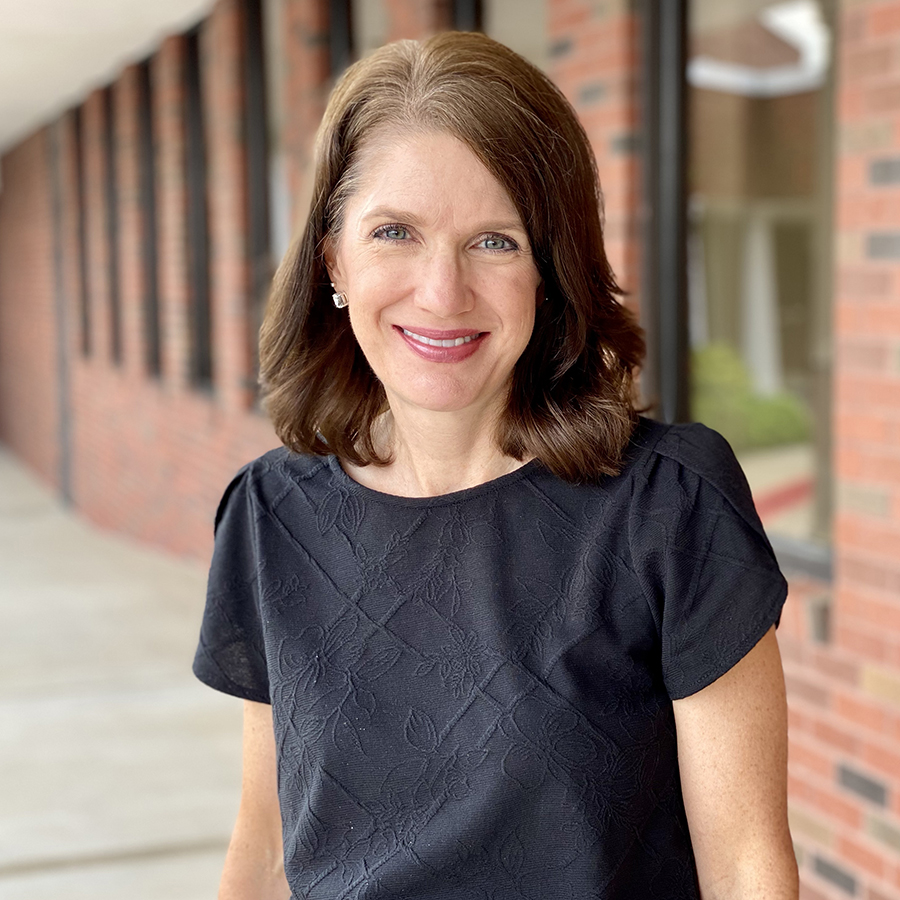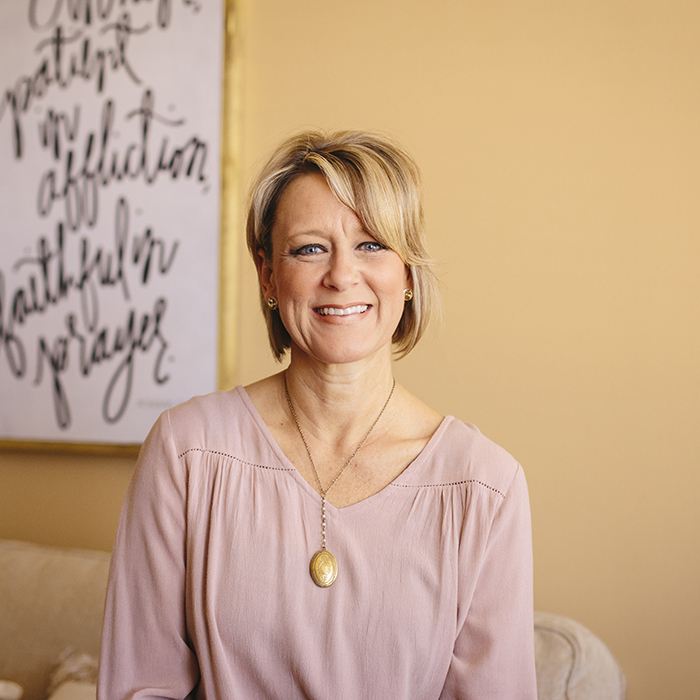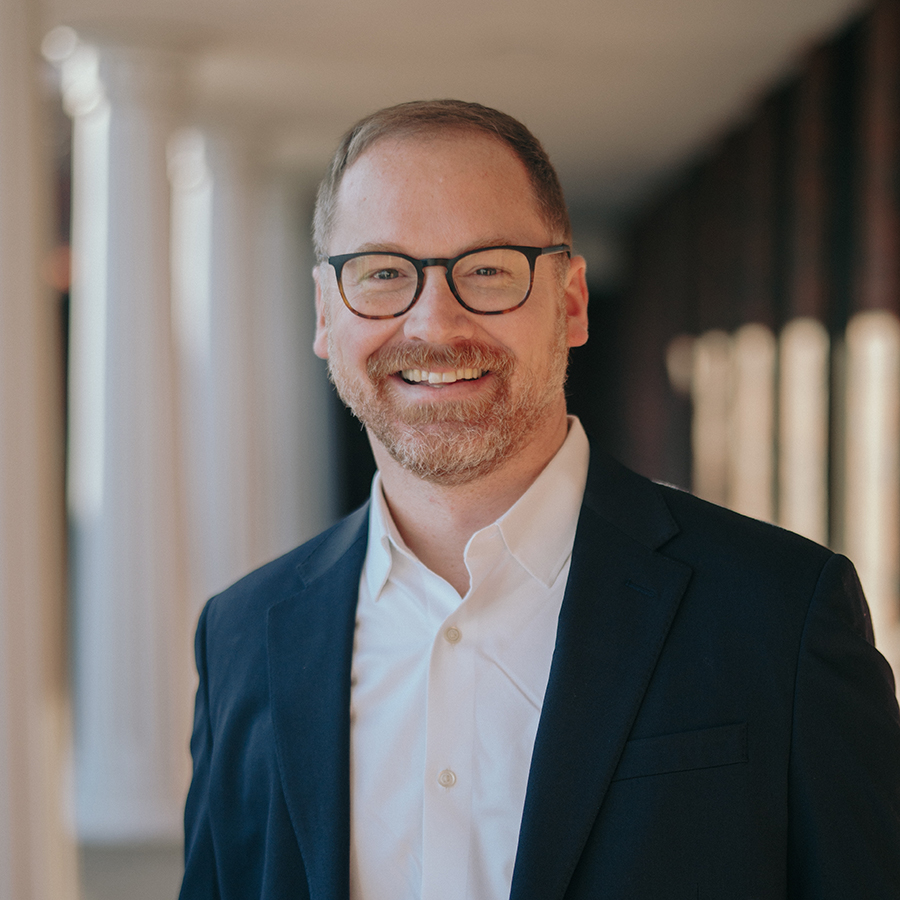Julie holds a Master of Arts in Counseling from Midwestern Baptist Theological Seminary. She uses an integrative approach, giving the principles of Scripture and God’s design for our lives the ultimate authority in all things while allowing her clinical training to inform the process. Julie is a follower of Christ with special training and experience in applying the truths of the Bible to life. She believes Scripture is sufficient to speak to all of life and to all of its problems, but sometimes it takes careful thought and prayerful wisdom to know how to make those connections. She believes that the Bible ultimately points us to a Person and a relationship – Jesus Christ as our Savior and Redeemer, and that real change comes when people learn to see themselves and their problems in the context of a living, vital relationship with Christ. Julie believes that deep and lasting change is brought about only by God himself through the power of the Holy Spirit, with a strong emphasis on the influence of living in healthy, encouraging community. Her counsel is based upon the principles of Scripture first and foremost, and other Christian teachings that align with the truths of God’s Word. She is passionate about helping people find hope and healing in the context of a growing, abiding relationship with Jesus. She believes that the Church has a unique role in bringing the hope of the Gospel, the wisdom of Scripture, and the care of the local church to bear upon people’s problems and suffering.

Facts about Formal Counseling with Julie:
NOTE: Julie is not licensed with the state of Arkansas and is not considered a professional counselor; because of this, she is by law limited to counseling church members only. She provides church-based counseling only.
Living Well is a branch of Arkansas Baptist Children and Family Ministries, part of the Southern Baptist Convention of Arkansas. There are 29 Living Well sites in 27 different Arkansas cities, with offices in Springdale, Fayetteville, and Rogers. Most all LW therapists offer Telehealth services, providing virtual counseling for anyone located in the state. All LW counselors are believers in Christ, and active in a local church. They all provide faith-based counseling congruent with the Southern Baptist Convention Statement of Faith.
Living Well is a community of licensed, professional counselors, certified and trained in various specialties such as EMDR (Eye Movement Desensitization and Reprocessing), child play therapy, sand tray therapy, family therapy, Emotion Focused Therapy, trauma-informed therapy, marriage therapy, and various other areas. They are prepared to counsel most any mental health challenge. Their services and expertise extend beyond the other forms of counseling Cross Church can offer, and can service all situations – individuals, couples, and families.
Visit the Living Well website for a more thorough understanding, arkansasfamilies.org/counseling.
Facts about Professional Counseling with Living Well:
Gina has been in full-time vocational ministry at Cross Church for 31 years. She holds a Bachelor of Arts in Family Studies and Child Development and is currently working toward certification in biblical counseling. Her ministry experience includes spiritual guidance and biblical training to parents with children ages birth through 18 years of age as well as mentorship and discipleship to women ages 12 years to senior adult. Gina often finds herself walking with individuals through seasons of trauma, grief or suffering. This journey has given her valued experience that has allowed her to grow in her calling to help women of all ages find hope and healing in the midst of life’s greatest hardships and struggles. In her sessions, Gina will help individuals understand how God’s Word speaks to their particular struggles, and how Jesus can bring meaning to their suffering and healing to the most wounded places of their hearts. She has a passion for helping women reframe their stories within the bounds of God’s unlimited love and grace and to help them live more fully in their God-given identity as beloved daughters.

Facts about Biblical Counseling with Gina:
NOTE: Gina is not licensed with the state of Arkansas and is not considered a professional counselor; because of this, she is by law limited to counseling church members only. She provides church-based biblical counseling only.
Chris holds a Master of Arts in Christian Education from Southwestern Baptist Theological Seminary. He is working toward his doctorate in Community Care Counseling through Liberty University. He has 20 years of full-time vocational ministry experience, offering spiritual guidance to college students, young adults, and married adults of all ages. He is committed to a balanced and biblical approach to counseling, believing that life change begins with a personal, growing relationship with Jesus Christ and is sustained, in part, by engaging in a healthy biblical community. As a certified Prepare/Enrich Facilitator, he has a passion for helping couples grow in their faith and their relationship with each other. This includes coaching engaged couples through premarital counseling as they prepare for the life-long commitment of marriage, as well as coaching married couples through various seasons to find hope and cultivate a healthy, vibrant relationship that leads to a resilient, life-long marriage. He is also passionate about helping people develop a meaningful relationship with Jesus Christ by integrating various spiritual practices into the rhythm of life, including silence, solitude, prayer, biblical meditation, Sabbath, and more.

Facts about Premarital Counseling and Marriage Coaching with Chris:
NOTE: Chris is not licensed with the state of Arkansas and is not considered a professional counselor; because of this, he is by law limited to counseling church members only. He provides church-based biblical counseling only.
Cross Church has well-qualified pastors and ministry team members on staff, many of whom are seminary-trained and hold master’s degrees in various theological fields. While they are not formally trained in counseling, they have experience in helping people apply biblical principles to life and problems. Their approach to counseling is informal, however, and would not be structured the same as the other forms of counseling.
Facts about Informal Pastoral Guidance:
NOTE: Cross Church Ministry Team Members are not licensed with the state of Arkansas and are not considered professional counselors; because of this, they are by law limited to counseling church members only. They provide church-based counseling only.
God created his children to heal and grow in relationship with each other. That is one of the important reasons why the local church is so necessary in the life of a Christian. Every aspect of Cross Church has a therapeutic component – Sunday morning worship, small groups, service to the body of Christ, etc. People oftentimes experience healing before they ever see a counselor when they embrace all aspects of church involvement, become honest with themselves and others in the context of safe relationships, allow direction and accountability from fellow believers, and allow themselves to be loved by and grow with others.
If you have done these things and still have struggles, then counseling can be an option for you as one component of your therapeutic process. If you still feel isolated and confused, your problem is getting worse and more frequent, you find yourself trying to numb your emotions, or you find yourself withdrawing or becoming unproductive in life due to your problem, then counseling may be for you. In addition, counseling provides a confidential relationship that becomes a temporary place of safety to work through difficult issues.
Keep in mind, though, that the knowledge, insight, and direction you gain from counseling still must be worked out in community and not in isolation. That is why we will always approach the process with a member with holistic healing in mind involving other aspects of the church and opportunities outside the counseling room.
Counseling requires a collaborative relationship and a willingness to work. Because counseling involves exploring painful places in order to find healing, you may experience discomfort and unpleasant feelings at times. This may result in disruption and turmoil in your life.
If you come with a desire to change, and the willingness to work hard in between sessions, you will see the best results. You will only reach your goals with ongoing effort and hard work. Your results from counseling depend on what you put into it. Counseling is not a passive activity. Purposeful, ongoing work outside of counseling sessions is needed to find lasting freedom from any specific problem or challenge. Remember that your problems did not occur overnight, so they will not be resolved overnight either. Counseling often leads to better relationships, solutions to problems, and a reduction of distressing feelings. Please be aware that there is no guarantee of a specific result in counseling.
During counseling, you will receive “tools” that you can use in your life as you work through current problems and encounter new ones after your counseling is complete. The counseling process includes collaborative goal setting and “homework” designed to help you meet your goals, as well as check-ins and evaluations along the way. Because the process is designed to help you find your own answers through the leadership of the Holy Spirit, you will not receive “advice” or “solutions”, but rather direction. Consider counseling the beginning of a journey toward a correct and greater understanding of God, yourself as his beloved child, your uniqueness and purpose in this world, and your problems in light of the teachings of Scripture. Prayerfully, this will result in a deeper, abiding relationship with Him, from where all answers ultimately come.
The goal of counseling is not to eliminate problems and produce a “finished product.” Unless you are at peace with this reality, you will never feel like life is “good enough” to free you from counseling. Scripture says we will always have pain and suffering as long as we are on this earth (John 16:33). The goal of counseling is to learn to navigate through rough emotional and relational times properly so they do not cause impairment in the ability to engage your primary life roles.
Confidentiality for counseling with any staff member at Cross Church is defined by pastor-parishioner privilege because we are a local church, and therefore, our staff members operate as agents of the church (pastors/ministers), not agents of the state (licensed counselors.) Confidentiality is an important aspect of our counseling process. We will carefully guard the information entrusted to us. No record of your involvement with the counseling ministry will appear on any churchwide database, or records kept in a place that is accessible to anyone except the counselor you meet with.
Living Well counselors adhere to the AACC code of ethics. They also provide each counselee with a thorough explanation of confidentiality, explained in the Informed Consent. They are required to follow HIPAA law, which protects sensitive client health information from being disclosed without the client’s consent or knowledge.
If after reading these FAQs you determine that one of these counseling services would be a good fit for you, you can use the “Request Help” link on the main counseling page. Someone will respond to your request by phone within 2-3 business days and help you with next steps.
Please be aware that the counseling ministry is not an emergency service, and an immediate appointment will not be possible. If you have a medical or mental health emergency, you should call 911 or go to your nearest emergency room or mental health facility.
If you would like to contact Living Well directly, you can call 479-521-1296.
Informal pastoral guidance involves interactions which are not exclusively problem-focused because you will talk to your pastor about more than just your struggles, and live in community together. Pastors offer ongoing relationships that grow and change throughout time, which are mutually beneficial. Pastors speak out of personal experience and biblical principles, and are not expected to know “best practices” for various life struggles. Their criteria for ministry qualification is based upon character and doctrine more than counseling competence. Pastors adhere to informal relational protocols; conversations with pastors occur in church hallways, on the phone, or in a small group settings, among other places. There is not necessarily a specific structure to the process. Many of the pastors are seminary-trained and hold master’s degrees in various theological fields.
Formal, professional, and biblical counseling provide an intentional relationship predicated upon overcoming a challenge or navigating a life transition. They offer a more structured, short-term relationship which is singularly beneficial – the relationship exists to benefit the counselee. Counselors speak out of biblical principles and advanced training, have been formally trained, and may hold advanced degrees. Conversations with counselors are by appointment only, held in an office, and adhere to formal relational protocols.
The content (biblical substance) of the interaction with a member of our ministry team and counselors should be very similar. Both forms of care are “ministry”; they are Bible-based forms of care intended to navigate the challenges of life with the hope of the Gospel in order to experience the full life God intends. However, the nature of the relationship is different between our pastoral team and counselors. Pastoral counsel is informal and open-ended. Counselors provide guidance based on particular training and a short-term, goal-focused relationship.